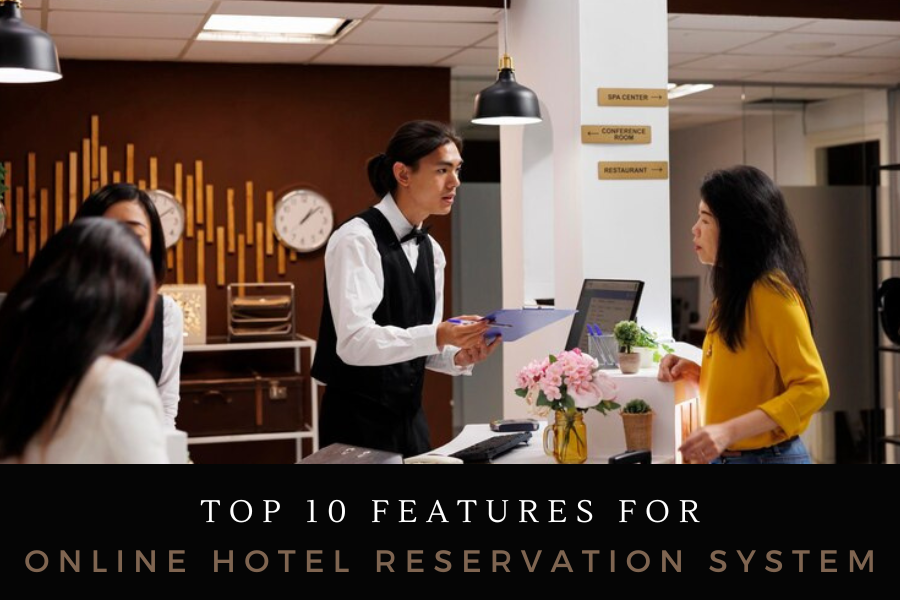Top 10 Features for Online Hotel Reservation System

The hotel business has changed a lot with modern technology. A good online reservation system helps hotels speed up bookings, keep customers happy, and boost revenue. It automates tasks, reduces manual work, and ensures smooth operations. Here are the top 10 important features every hotel booking system should have.
User-Friendly Interface
An intuitive and simple interface allows guests to quickly browse the available rooms, check availability, and reserve rooms in a matter of minutes. Clear and clutter-free navigation improves the general user experience.
Real-Time Room Availability and Booking
An efficient hotel reservation system must provide real-time hotel rooms’ availability. It will stop overbooking and guarantee that guests receive current and accurate information. Live inventory syncs allow you to efficiently manage reservations across multiple platforms.
Multiple Payment Options
A variety of payment options, like credit and debit cards, UPI, PayPal, and net banking, can make it easier for users. Secure payment gateways facilitate the smoothest transactions as well as build trust.
Mobile Compatibility
A majority of customers make reservations via their mobile devices So a layout that is mobile-friendly or an application specifically to book hotels is essential. The user-friendly, optimized interface allows users to make reservations on any device.
Automated Confirmation and Notifications
Instant booking confirmation via email or SMS enhances customer satisfaction. Automated reminders for check-in and checkout, along with other promotions, increase customer numbers of reservations and engagement.
Integration with Channel Managers
Hotels typically list rooms across several platforms, which include the OTAs (Online Travel Agents) and booking websites. Integrating with channel managers allows to synchronize reservations across various platforms, which reduces the risk of mismatches and booking over.
Guest Profiles and Loyalty Programs
A system that saves guests’ preferences, reservation history, and personal information helps provide a more personalized experience. Rewards programs, discounts, as well as incentives for returning customers, encourage loyalty and brand engagement.
Multi-Language and Multi-Currency Support
For hotels that cater to international guests, multi-language and multi-currency support improve accessibility. This feature ensures that guests from various regions can make reservations despite language barriers or currency conversion issues.
Analytics and Reporting
An integrated analytics dashboard lets hotel managers monitor revenue, bookings, guests’ preferences, and peak booking times. Analytics-driven data can aid in making informed decisions, help hotels improve pricing strategies, and enhance services.
24/7 Customer Support and Chatbot Assistance
A reservation system should have 24/7 support through live chat, chatbots, or a helpline. AI chatbots can answer questions, help with bookings, and give quick replies, making the process easier for guests and reducing staff workload.
Conclusion
A powerful online hotel reservation system is key to optimizing operations, enhancing guest experiences, and boosting revenue. With real-time booking updates, automated notifications, multi-language support, and secure payment options, a well-integrated hotel reservation system ensures a seamless experience for both hotels and guests. Whether you manage a boutique hotel or a large chain, leveraging advanced hotel booking software features will keep you ahead in the competitive hospitality industry. Choose PosEase to simplify your booking.
Search
Category
Recent Posts




